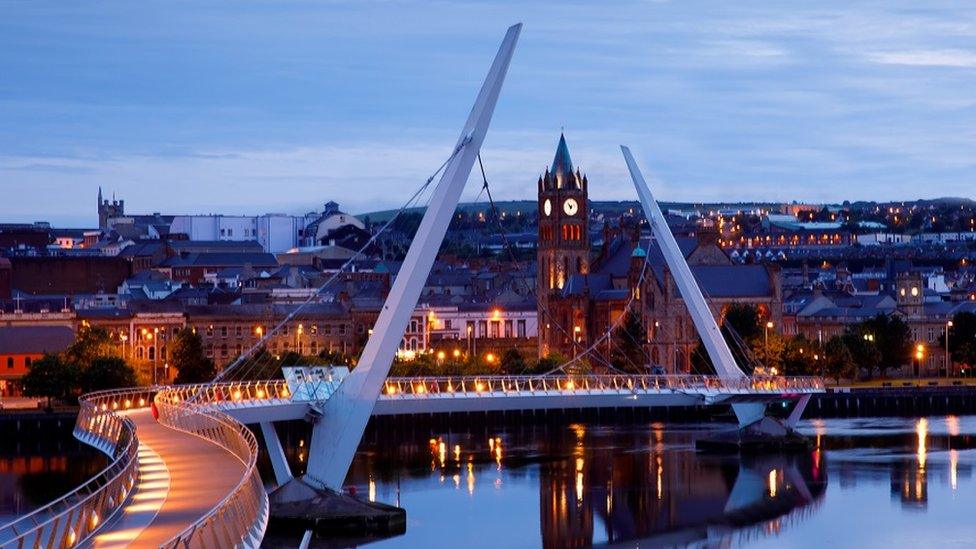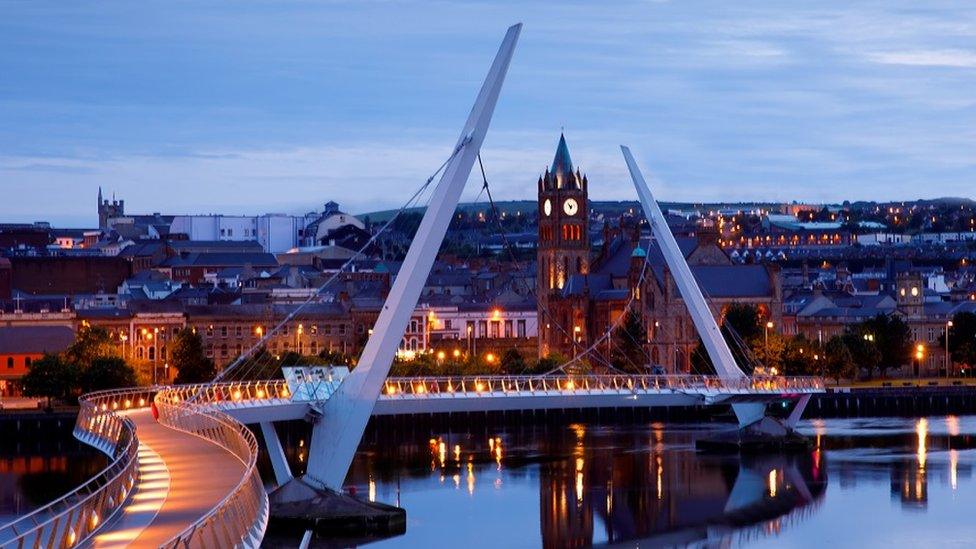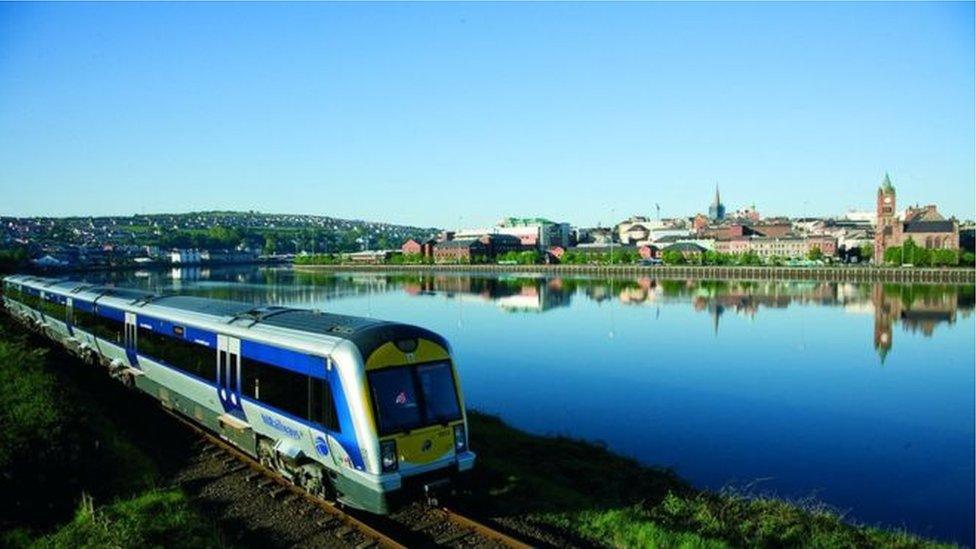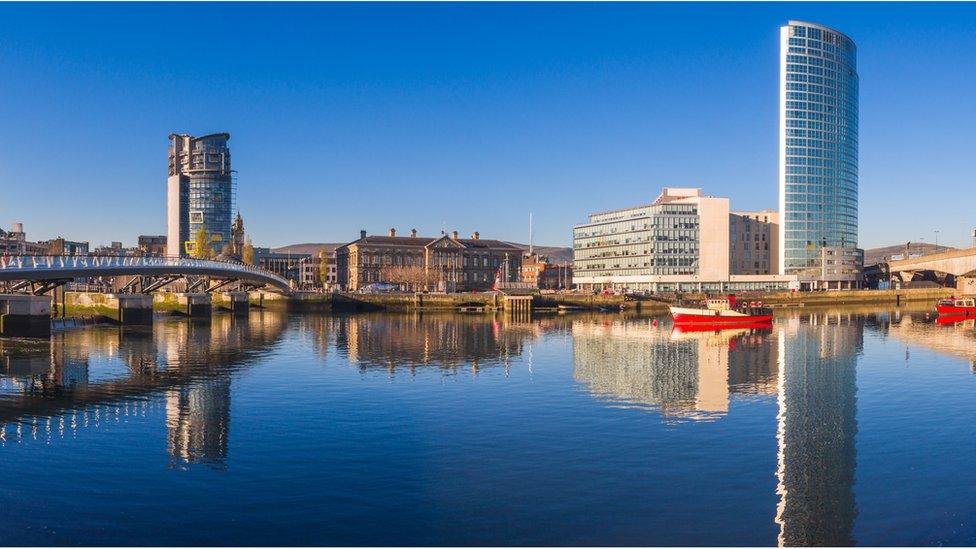Londonderry city deal: Council seeks further funding
- Published

Former NI Secretary Brandon Lewis approved the business case for the city deal in 2021
Derry and Strabane councillors have agreed to write to the UK Treasury requesting additional funding for its city deal at a meeting on Tuesday.
It comes after councillors were informed plans may have to be scaled back in light of inflation.
The council will also seek support from the Department of Finance due to "construction inflation and further financial pressures".
In the deal, funding of £250m will be invested in the region over 15 years.
It has hopes of creating 7,000 jobs and is the largest single investment made in the region with the potential to add about £210m a year to the area's economy.
Ten major projects are proposed within the deal, with a focus on health and life sciences and digital industries.
At Tuesday night's meeting, Derry City and Strabane District Council chief executive John Kelpie told councillors the difficulties facing the city deal projects mean their benefits "will be reduced".
Mr Kelpie said progressing other major projects such as university expansion and infrastructural projects in parallel with the city deal was always deemed as important, but inflationary costs were an issue.

What is in the city deal?
Some of the projects proposed in the deal include:
The medical school at Ulster University's Magee campus
The creation of a centre for industrial digitisation, robotics and automation
The establishment of a cognitive analytics research laboratory
Healthcare innovation and research projects
A digital programme to tackle connectivity issues across the region
Redevelopment of Derry's riverfront
Urban regeneration projects and environmental initiatives
Redevelopment of Strabane town centre
Infrastructure and tourism projects

Speaking at the meeting, DUP cllr Maurice Devenney said costings were now "a lot greater than expected" and asked what those involved in Belfast city deal are doing "to balance their books around budgets".
SDLP cllr Brian Tierney added that the letter to the Treasury should reflect that the project was always intended to be a partnership and the council were "never the sole carriers of this".
He added: "It's not fair that because the prices go up, this council and the citizens of this district have to carry the can. If there are difficulties financially, all of the partners have to come together to sort out these issues.
"The only way we can sort them out is by re-jigging the projects. Any response to the inflationary costs has to be met by the British government."
An update report by the council cited the "growing scale and impact of increasing construction, materials and energy costs and inflation due to current national and global economic circumstances".
It stated: "The overall consequence of the above is that, at present, cost estimates for almost all of the projects as envisaged at Strategic Outline Case stage and developed since, are currently projected to be very considerably in excess of the available funding."
The report suggested solutions will include "a range of considerations such as a reduction in complexity to some of the projects, mitigation of site specific issues highlighted through initial design development which have led to increased cost projections, adjustments to design and specifications etc and application of additional budget if possible by individual project partners".
Related topics
- Published24 February 2021

- Published24 October 2019

- Published26 March 2019
